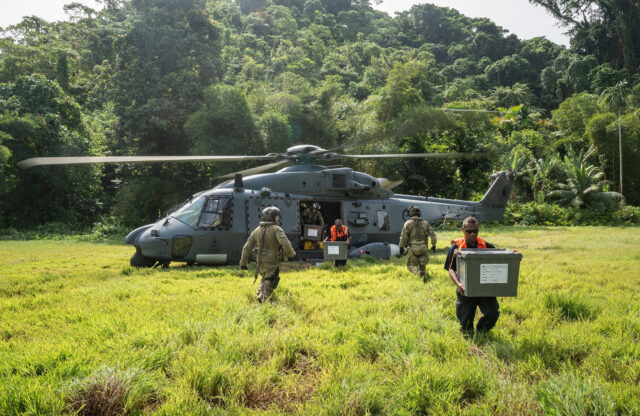On Wednesday, the Solomon Islands held a parliamentary election, the first since Prime Minister Manasseh Sogavare established a security agreement with China in 2022, which brought the Pacific Islands nation closer to Beijing.
The results of the election will be keenly observed by the United States, China, and Australia due to its possible effects on the rivalry between the U.S. and China in the Pacific. Opposition parties have noted that voters are primarily concerned with the inadequate state of health services, education, and road infrastructure.
Shortly after assuming office as Prime Minister in 2019, Sogavare shifted the Solomon Islands’ diplomatic allegiance from Taiwan to Beijing and has committed to enhancing ties with China. China is involved in constructing ports, roads, and a telecommunications network in the Solomon Islands.
His opponents have criticised the security pact with China, which has a police presence on the islands. Australia has traditionally been the biggest aid donor and security partner.
Prominent opposition figures include Matthew Wale, leader of the Solomon Islands Democratic Party, which has formed a coalition with the Democratic Alliance Party, pledging to boost education and fix hospitals that often run out of medicine.
Peter Kenilorea’s United Party aims to scrap the China security pact and create more infrastructure partnerships with Western countries to reduce Beijing’s influence.
“My hope for this election is to see real change,” said Kerrie Jonisi, voting in Honiara. Another voter, Dudley Akora, when asked about the security pact, which has not been published, said he didn’t think people knew what was in it. “I feel that it’s not that really ok,” he said.
Sogavare, running as leader of the Ownership, Unity and Responsibility Party, has pointed to hosting the Pacific Games, with stadiums donated by China, as a major achievement.
The Solomon Islands archipelago is home to just 700,000 people but occupies a strategic position 1,600 km (990 miles) northeast of Australia. The Electoral Commission has warned against vote buying in the election, in which the outcome is unclear.
Sogavare has been prime minister four times, but never for consecutive terms.
Electoral Commission chairperson Madam Taeasi Sanga told a live streamed press conference after voting closed that the process had been peaceful and successful and that police would help secure the count, which would begin on Thursday.
“Whoever wins, respect the decision of voters,” she said.
The Islands have had a volatile history, with anti-government riots in 2021 and earlier inter-tribal violence.
“Whether it be in your favour or not, I emphasise that we keep the peace,” Royal Solomon Islands Police Force Commissioner Mostyn Mangau said.
The Solomon Islands archipelago has a population of just 700,000 but occupies a strategic position 1,600 km (990 miles) northeast of Australia.
Police and defence forces from Australia, New Zealand, Papua New Guinea and Fiji are assisting with election security and Observer groups from Australia, New Zealand, the Pacific, Japan, Europe and the U.S. are monitoring the election.
The 50 members of the national parliament are elected to serve four-year terms. After the election, the process of selecting the prime minister involves a vote by the newly elected lawmakers, a procedure that can span several weeks.
With Inputs From Reuters
















